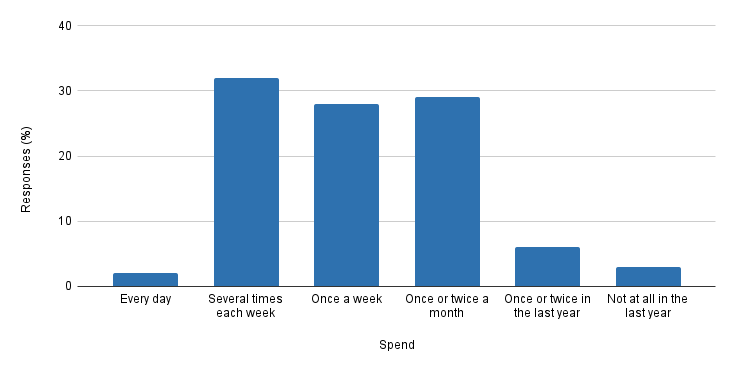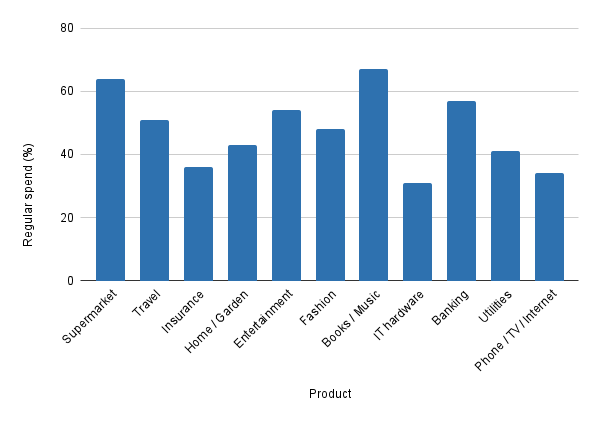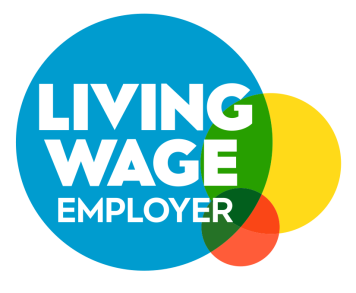Why We Need To Care About Accessibility
Have you ever considered how accessible your website truly is?
Digital accessibility is a lot more important than many people realise; it's about making our online world available to all. It's the difference between a great user experience and an impossible one for people with disabilities. But convincing stakeholders that accessibility is a fundamental necessity—not just a 'nice-to-have'—can be a difficult conversation.
To make that case easier, I'll walk you through my three key motivators. But before we get there, let's first define what we're talking about when we say "accessibility."
What is accessible content?
Digital accessibility covers the way we design, build and write content for the Web. It can be roughly defined using four core principles:
Perceivable - We use sight, hearing, and for some, touch to perceive Web content. Some people have impaired senses. To be accessible, our content needs to be perceivable to at least one of a person’s functioning senses.
Operable - There are many ways people interact with our websites. Many of us use a combination of mouse and keyboard, but some need to use alternatives. Accessible websites can be interacted with regardless of the technology being used.
Understandable - People have a range of cognitive abilities. Accessible content uses clear and concise language; and uses familiar layouts and components that are recognisable to interact with.
Robust - People use a variety of devices, browsers and assistive technologies to access the Web. To be accessible, websites should support a wide variety of these technologies.
Key motivators for an accessible Web
Human
The first key motivator I refer to as human. This is about acknowledging that different people have different abilities; and for some, they have specific needs that we should take into account.
We all experience inaccessible Web content. It could be that an image fails to load or the audio on a video is muffled. Perhaps a button on a form fails to submit or a link doesn’t work correctly. You may be presented with some instructions that have been confusingly written. Maybe the website just fails to load. When we encounter these situations we can become quickly frustrated. If you have a disability, these sorts of experiences will sadly be the norm: they shouldn’t be!
In the UK, almost 1 in 4 working age adults have a disability. The number of people with a disability is even higher in old age. For most people, over 80%, disability is something they acquire later in life. We’re all potentially one accident or illness away from developing an impairment.
Perhaps you are surprised by those statistics. It is easy to imagine those living with a disability as a minority. This is not the reality. Lots of disabilities can be invisible, or perhaps better put non-apparent. For example, colour-blindness, Dyslexia, Arthritis or ADHD. Each of these conditions will impact how someone interacts with our websites.
In reality many are affected by inaccessible content. Regardless of our abilities, we all experience temporary disabilities from time-to-time.
The important thing here it that when we get digital accessibility right, it helps give those with disabilities greater independence. I personally believe this is the most important reasons for creating an accessible Web.
Economic
The next key motivator is economic. We’ve established that people with a disability are not a minority. This means many potential users of your website, your potential customers, will have some form of access needs. The economic motivator is about recognising this, and the potential loss of earnings by not creating accessible content.
Research by Click-Away Pound found that in 2019 UK retailers lost an estimated £17.1 billion. This was due to people abandoning retail websites due to accessibility issues they encountered.
The same research found that most people with access needs (those using assistive technologies) frequently shopped online once or twice a month. Close to a third made purchases online several times a week. Just because someone has a disability doesn’t mean they don’t use the Web like everyone else.

It was also found that regular spending by those with access needs spanned a wide variety of sectors including supermarket, banking, entertainment and fashion. Just because someone has a disability shouldn’t mean we make assumptions over how they live their lives and spend their money.

If you neglect to take accessibility into account and your competitor does, you risk losing customers to them. At which point, brand loyalty may work against you.
Punishable
The final key motivator is punishable. This is about understanding that there are legal reasons for ensuring websites are accessible.
In the UK, we have several laws that can be used to enforce digital accessibility. These include:
Equality Act (2010)
Disability Discrimination Act (1995 - Northern Ireland)
Public Sector Bodies Accessibility Regulations (2018)
As an example of the law being used for accessibility in the UK, in 2012 the RNIB sued Bmibaby. Bmibaby (a budget-airline) had updated their website two years prior; as a result, booking a flight for those with visual impairments had become much harder. The RNIB used the Equality Act (2010) to force Bmibaby to make improvements. The case was settled outside of court.
Many countries are introducing laws requiring digital products and websites to be accessible. These often use the core principles of ‘perceivable’, ‘operable’, ‘understandable’ and ‘robust’ as the definition of what classifies as accessible.
From 28th June 2025 the new European Accessibility Act came into enforcement. This is a new EU directive that impacts businesses worldwide, include those based in the UK. If you sell, or provide an online service to any EU member state, your website must be accessible.
Penalties for non-compliance of the European Accessibility Act vary between European member states. These have been defined in individual nations’ laws and are generally financial. In some cases, prison sentences can be issued.
It doesn’t matter if you are headquartered in the UK. If you do business within the EU, and you meet the directive’s requirements, this act applies to you and you can be penalised.
In summary
In this blog post I have used the term ‘key motivators’. I could have talked about these as arguments for digital accessibility. Instead, I have favoured the more positive word ‘motivator.’ I strongly believe accessibility should be seen as an exciting and important part of our work.
Those with accessibility needs are not a small minority in our society. Creating accessible websites, apps and content gives people greater independence; it increases the number of potential customers we can reach; and finally, is a legal requirement for ensuring equality and inclusion. If you'd like to understand more about how you can prioritise digital accessibility in your business, get in touch today.






